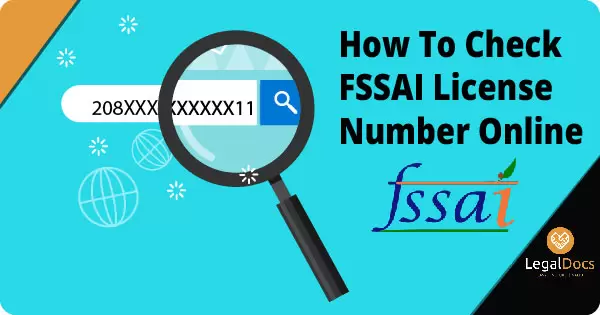One Person Company vs Sole Proprietorship Firm in India
Proprietorship has been defined as the simplest business form under which one can operate a business. It is not a legal entity and simply refers to a person who owns the business, personally responsible for its debt. A sole proprietorship can operate under the name of its owner or else do business using a fictitious name. It is a popular form of business in India, because of its simplicity of set up and nominal cost.
On the other hand, One Person Company can be defined as per the Companies Act 2013. The concept is new in India and supports the entrepreneurs who have the capability of starting a venture on their own by creating a one person economic entity. Similar to a company, it has a separate legal entity and offers limited liability protection. This means, that this form of business allows a lone entrepreneur to operate a corporate entity.
In simple words, a Sole Proprietorship refers to an entity run and owned by one individual wherein, there is no difference between the owner and the business. And the concept of one person company refers to a separate legal entity wherein a single person is allowed to run a company limited by its shares. For the ease of understanding the concept here is a difference between the two mad in terms of its features:
Major Differences between One Person Company vs Sole Proprietorship
Limited and Unlimited Liability:
Taxation:
Succession:
Compliance:
Conversion:
What kinds of business best suits the proprietorship and one person company:
A proprietorship is recommended for businesses where a single individual is entitled to manage and control the business operation with least statutory compliances. Therefore, this form of business is preferred where the nature of the business is simple with least to nominal financial risks involved. Enormous debts have to be avoided and the product market should ideally be small. The businesses that involve the least capital suitably run as the sole proprietorship firms. Proprietorship falls under the category of unregistered business. Therefore, if one is doing a business that requires to follow mandatory business registration, the proprietorship is definitely not the correct one.
The only type of corporate entity that can be started with a single promoter is one person company. It ensures that the business has a perpetual existence until it is legally dissolved. This means it remains unaffected by death or departure of members. Despite this, the ownership of the business is easily transferable by merely altering the shareholding, directorship, and nominee information of the director. Businesses that require huge capital and have financial risks may prefer to register as one person company. This is because banks and financial institutions prefer to provide funding to one person company rather than a proprietorship firm. Therefore, it is easy to borrow funds from a one person company. Since the capital is a borrowed one, the financial risk of loss of capital in the business is shared. It is true that one person company can be converted into a public or private company and vice versa at the will of its members if it fulfills certain criteria. However, one person company cannot issue any type of equity security. The company shall own the property, machinery, building and all other intangible assets.
Registration of a Proprietorship Firm vs. Incorporation of a One Person Company:
Business is done in the name of the individual or the owner of the Sole Proprietorship Firm. Sole proprietorships fall under the category of unregistered business. Though business does not have any separate legal entity from that of the owner, it is an independent business entity as it is not registered with the Central government. The business name of the sole proprietorship firms is not stringently verified. It is for this reason that most entrepreneurs adopt a business name that is common but not infringing on trademarks. Therefore, in order to provide legitimacy in this business structure, a current bank account is established in the name of the Sole Proprietorship firm.
Since it is not compulsory to register this kind of business, Reserve Bank of India has made several guidelines.
According to these guidelines, there is a list of documents that are required to open a current bank account in the name of a proprietorship firm:
First Sole Proprietorship Proof (Need anyone of the these):
Certificate of registration that may be in the form of a Trade License; issued by local, state, or Central government.
Mandi license or APMC
Labour License or its registration certificate.
Professional Tax registration certificate
Liquor license (specific to some businesses)
Drug license
Excise & Customs Department Registration Certificate
Weight & Measurement Act Registration Certificate.
Permission or license from the Police Department
Regional Transport Office Permit/Registration Certificate
State/Central Pollution Control Board’s Consent to Operate.
Certificate Issued by SEZ, STP, EHTP, DTA, and EPZ in the name of the entity.
IEC Certificate along with PAN Card (if PAN is quoted on the IEC Certificate).
If the business is located in a rural area, a Gram Panchayat Certificate (should be on letterhead and not more than 3 months old) is also required.
District Industries Center (DIC)/ Small Scale Industries (SSI) Certificate that should be duly stamped and signed by issuing authority.
Factory Registration Certificate in the name of the entity.
SEBI Registration Certificate in the name of the entity.
Second Sole Proprietorship Proof (Need anyone of the these):
Registration of firm with Employee Provident Fund Organization or Employee State Insurance Corporation.
Last available Income/ Wealth Tax Assessment order in the name of the firm.
The latest copy of Electricity Bill or a Telephone Bill not more than 3 months old.
Water Tax bill paid to Municipal Body/ Corporations (not more than 6 months old).
Property Tax bill in the name of the firm, which should not be more than calendar one-year-old from the bill issuance date along with Tax receipts for property tax paid to Municipal Body / Corporations.
Weight & Measurement Act Certificate of Verification.
Sole Proprietor Identity Proof (Need anyone of the these): While PAN card is mandatory, one can attach anyone of the documents among; Passport, Voter ID, Driving License, Aadhar Card, Senior Citizens card, Fisherman ID Card issued by state or central government, or an arms license.
Sole Proprietor Address Proof (Need anyone of the these): While all of the documents mentioned in the identity proof go well here. Also, besides them, utility bills (Electricity bill, Telephone bill, Water Bill) not older than 3 months can be considered. Property tax bill less than one-year-old along with Tax payment receipts are an important form of address proof. Consumer gas connection card/Passbook along with the receipt of gas supply not older than 3 months and the registered lease agreement can also be considered.
It is only when the proprietor gives one documents from each category, the bank shall open a current bank account in the name of the firm.
Only a person who is resident of India i.e. the stayed in India during the immediately previous fiscal year must be for 182 days can think of incorporating a one person company. However, the person who has already formed one person company cannot be a member or nominee of another one person company within the same time period. The process if incorporation is given in the Companies Act, 2013 and is governed by the Ministry of Corporate Affairs.
Here are a few steps that are involved in the incorporation of one person company:
Obtain a Digital Signature Certificate of the proposed Director.
Once DSC is received, one may proceed to apply and obtain DIN number for the Director.
Further, name application has to be filed for Company registration to check company name availability. After the name suggested, it is imported to fix one person company.
For incorporation purpose, Memorandum of Association and Articles of Association have to be drafted.
Once all these documents are ready, one can begin to fill form electronically through eSpice.
Then requisite fees and stamp duty wherever applicable has to be paid.
Scrutiny of forms filed for purpose of incorporation is then held at the Registrar of Companies.
Once the scrutiny is completed and the Registrar is sure of the documents, Certificate of incorporation is issued by Registrar of Company.
Both these forms of business structures have their own benefits and risks involved. One must consider the need of the business before proceeding towards registration or incorporation of a business.
Apply for One Person Company Knowledge Center
Knowledge Center


























LEAVE A REPLY: